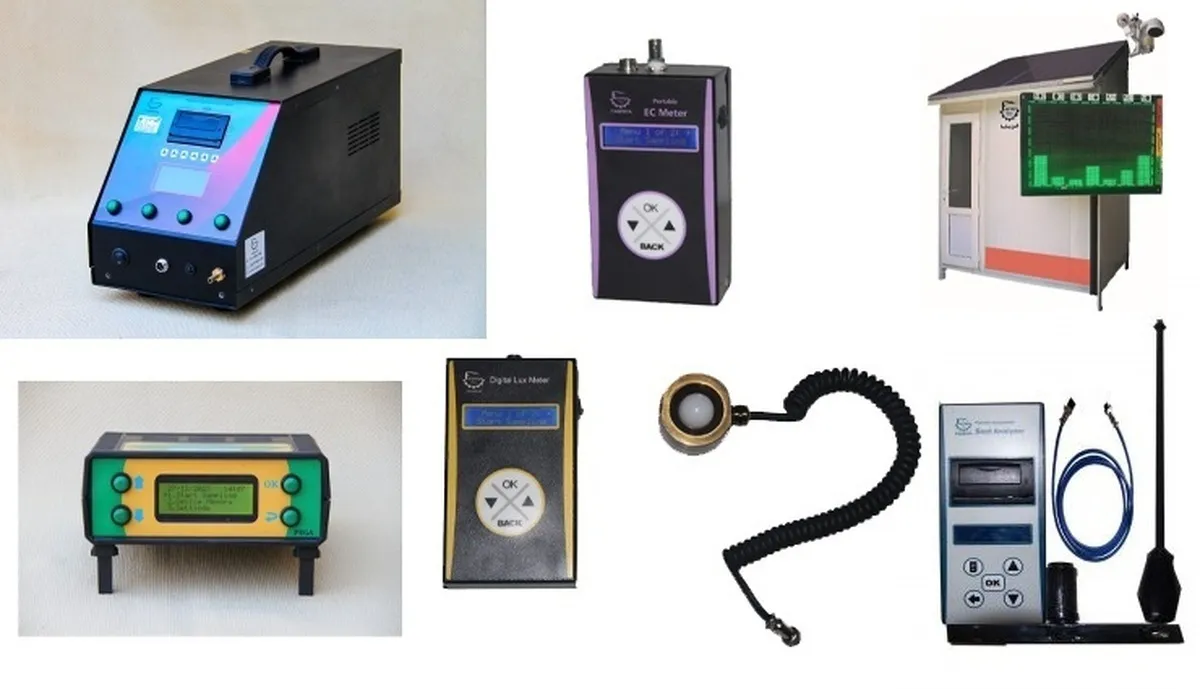Iranian Specialists Build Smart Systems for Monitoring Air Pollutants, Waste Management

“Our company is active in the field of production of environmental pollutant sampling and measurement equipment, and it is involved in the development of management systems for treatment plants and finding technological solutions to control the release of air pollutants and produce biogas from waste,” said Hossein Karimian, the managing director of the knowledge-based company.
He added that portable industrial smoke detector, environmental gas meter, car exhaust turbidity meter, car exhaust gas meter, environmental sound meter, free air particulate measurement device, and urban air pollution monitoring stations are among the products of the company.
“In addition to setting up water and air purification systems, the design, installation and management of solar systems are also carried out by our knowledge-based group. Measuring and reducing air pollutants, water and sewage pollutants and waste and providing calibration services of measuring equipment are other activities of our company,” Karimian said.
In a relevant development in November, researchers from Iran University of Science and Technology (IUST) had also produced nanofilters for water and wastewater treatment to reduce energy consumption.
“Producing And Examining Thin Layer Nanocomposite Membrane of Improved PVC Nanofiltration Using Inorganic Nanoparticles and Organic-Metallic Frameworks” is the title of a research carried out by Sanaz Ghiyathi in the form her Ph.D dissertation at the Iran University of Science and Technology (IUST), according to a report by public relations department of the Iran National Science Foundation (INSF).
“Due to the water scarcity crisis, the treatment of surface, saline water and industrial in order to reuse it in industrial and agricultural processes has grabbed the attention of many researchers. Water required by these sectors can be obtained by filtering effluents and saline waters,” she said.
She also said that membrane technology has made great progress to purify water and supply drinking water, as well as remove dangerous pollutants such as boron, arsenic and mercury. “Meanwhile, nanofiltration membranes at low operating pressure with high water flux, high bivalent ions and low molecular weight organic materials and low operating and manufacturing costs have made the nanofiltration process to be employed more than ever,” continued the researcher.
“In these studies, the nanofiltration membrane was built on an ultrafiltration membrane, which can be strengthened as an absorption substrate if absorbent nanoparticles are used. Accordingly, the introduction of desirable properties for nanofiltration hollow fiber membranes and the construction and evaluation of desirable nanocomposite membranes and performance analysis of nanoparticles with different modifications were among the activities that were carried out in this project,” Ghiyathi further said.
“Surveying the effect of nanoparticles on the structure and performance of the nanofiltration membrane, reducing energy consumption in the process of nano filtration and water desalination were among the objectives of the project, which we fortunately obtained.”
4155/v





















